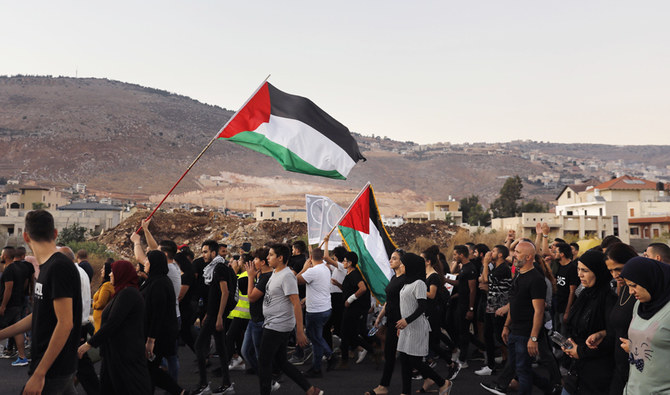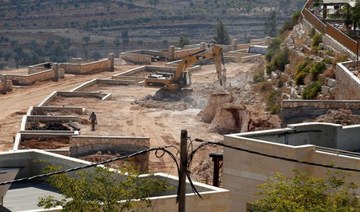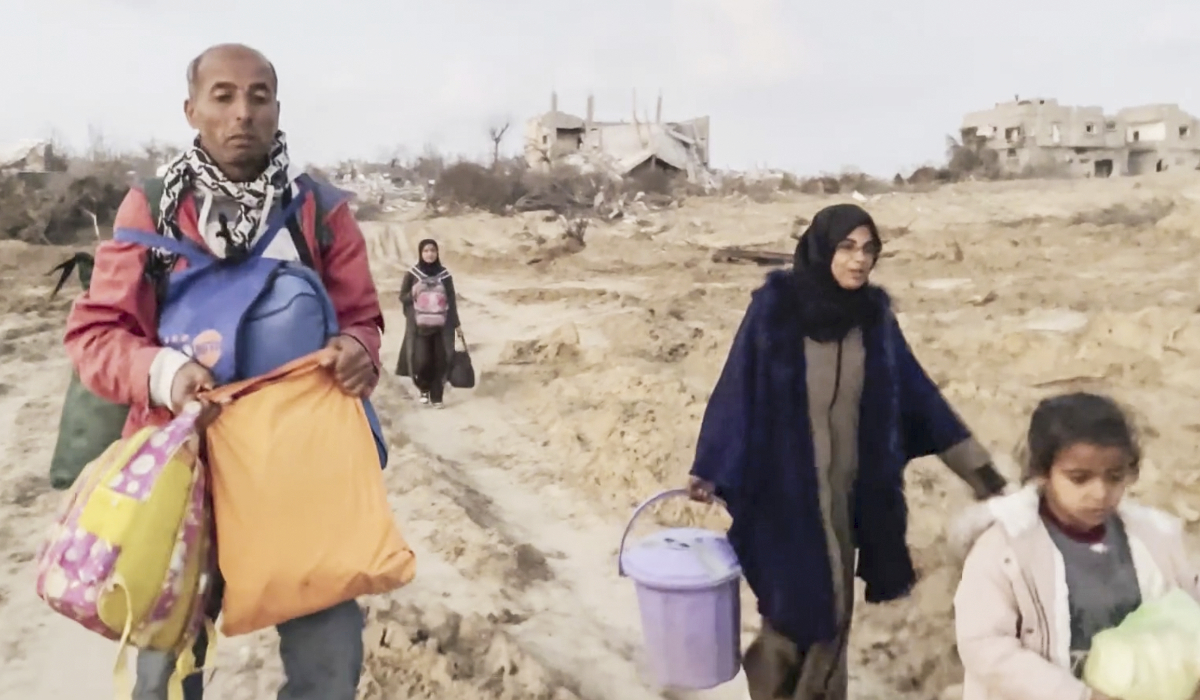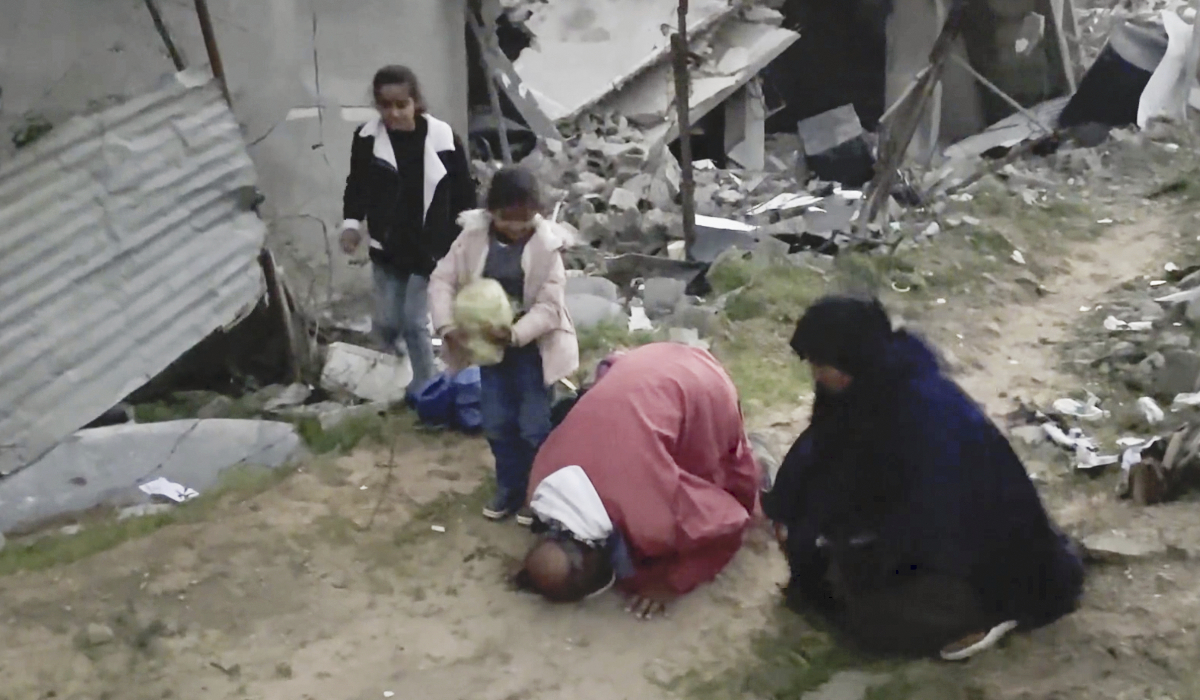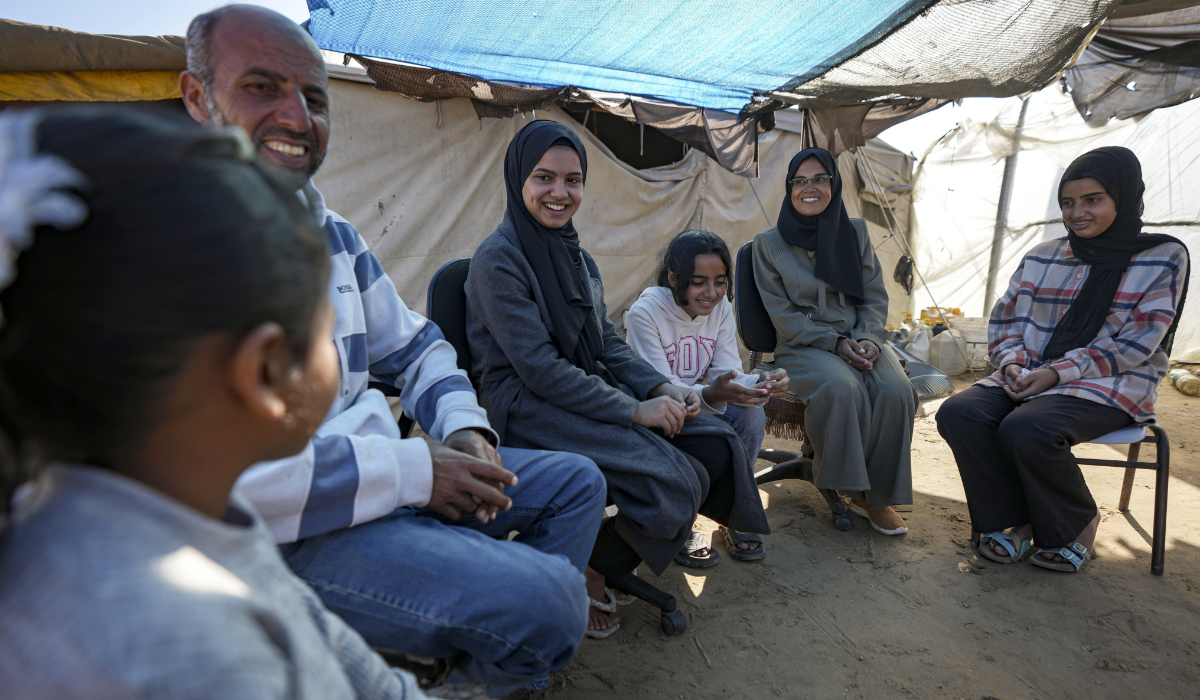JERUSALEM: Arab citizens of Israel observed a general strike and held protests on Thursday over a wave of deadly violence within the minority community.
Schools and businesses in Arab towns and villages were closed following a call by local and national Arab leaders, and newly elected Arab members of Parliament skipped the official swearing-in out of solidarity.
Police say there have been more than 70 killings in Arab communities this year, nearly as many as in each of the past two years, when Arabs made up more than half of all murder victims nationwide. Earlier this week, two brothers and a third individual were killed in a brawl involving guns and knives in the northern town of Majd Al-Krum.
Arab leaders say Israeli police largely ignore the violence in their communities, everything from family feuds and mafia turf wars to domestic violence and so-called honor killings. Israel’s Arab citizens make up 20 percent of the population and are descended from Palestinians who remained in the state after its creation in 1948. They have the right to vote but suffer discrimination and say authorities treat them like second-class citizens.
An Arab coalition made major gains in last month’s parliamentary elections, and has made improving public safety one of its top priorities. The 13 newly elected lawmakers did not attend the swearing-in at the Knesset because they were taking part in the strike.
“A racist government has neglected us and the police have abandoned our neighborhoods to gangs and criminals,” Ayman Odeh, the head of the Arab parliamentary bloc, tweeted. He said the strike was to demand weapons searches, tougher action against organized crime and higher budgets for education.
“If there is no other choice, we will block streets to return safety to the streets,” he said.
The police adamantly reject the allegations of indifference and say they are doing everything they can to stem the violence.
“Police are continuing to speak to the leaders of the communities in order to try and prevent the incidents from taking place, but at the same time also working inside the communities, patrolling more,” police spokesman Micky Rosenfeld said.
He said seven new police stations have been opened in Arab communities this year and there are plans to open eight more in the coming months. This year alone, police have confiscated 4,000 weapons and arrested some 2,800 people on weapons-related charges, according to Rosenfeld.
But he said local leaders need to do more to cooperate with police and to prevent violence.
“It has to come also from inside the community,” he said. “They can’t just, you know, decide at a wedding to open fire and shoot in the air. These are basic issues that have to be dealt with by the leaders of the communities.”
Thabet Abu Rass, the co-director of the Abraham Fund Initiatives, a group that promotes coexistence between Arabs and Jews, says he has personally worked to improve relations between the police and Arab communities as part of the group’s public safety program. But he said there is still a security vacuum in many Arab towns and villages that allows criminals to thrive.
“In terms of public and private safety our Arab towns are kind of ex-territorial, it’s kind of outside of Israel,” he said. “While we are citizens of the state of Israel, the state is not here, not in our towns.”
He said there’s a high level of mistrust between police and Arab citizens that makes cooperation difficult, and that the lack of a police presence inside the communities makes people reluctant to come forward with information for fear of violent reprisal.
“We are willing to cooperate with the police in issues related to combatting violence and crime in our community,” he said. But “before cooperation, we would like to see a police presence in our towns.”


